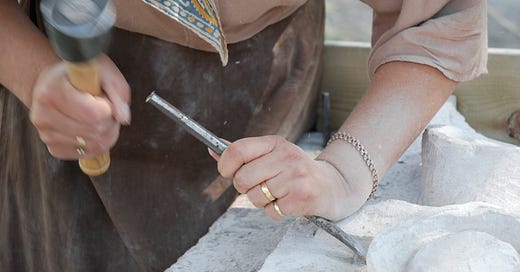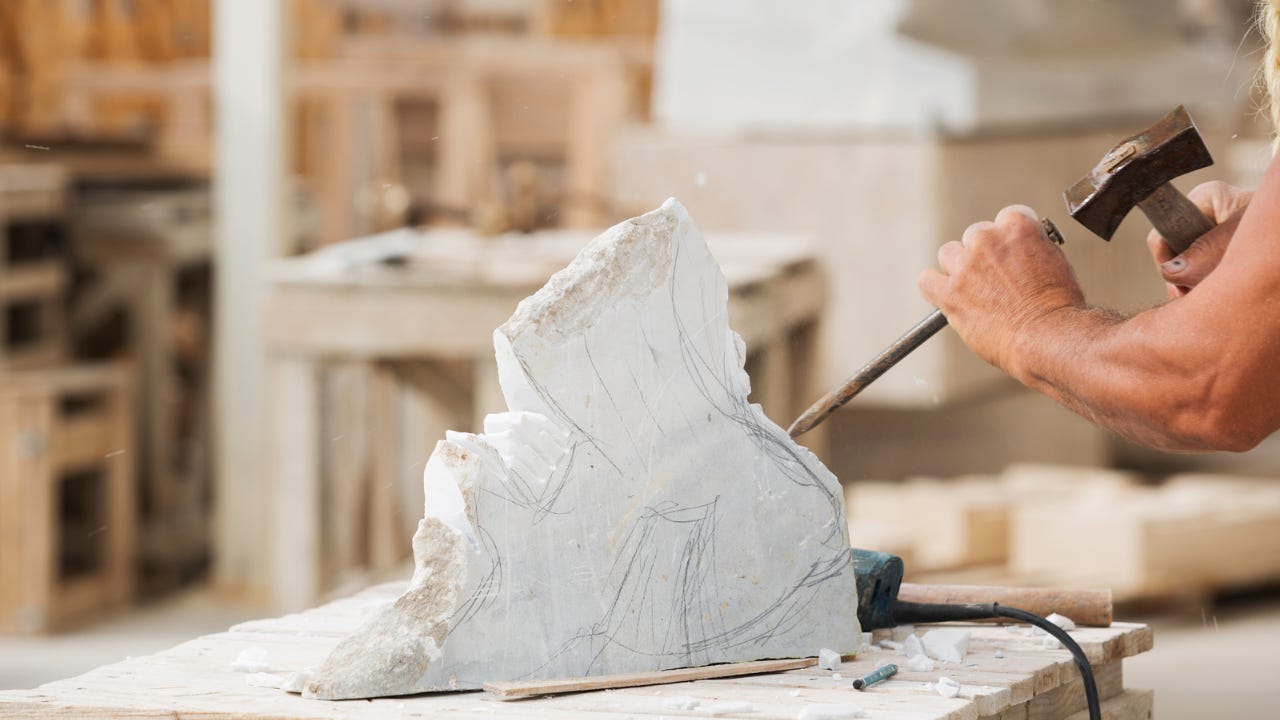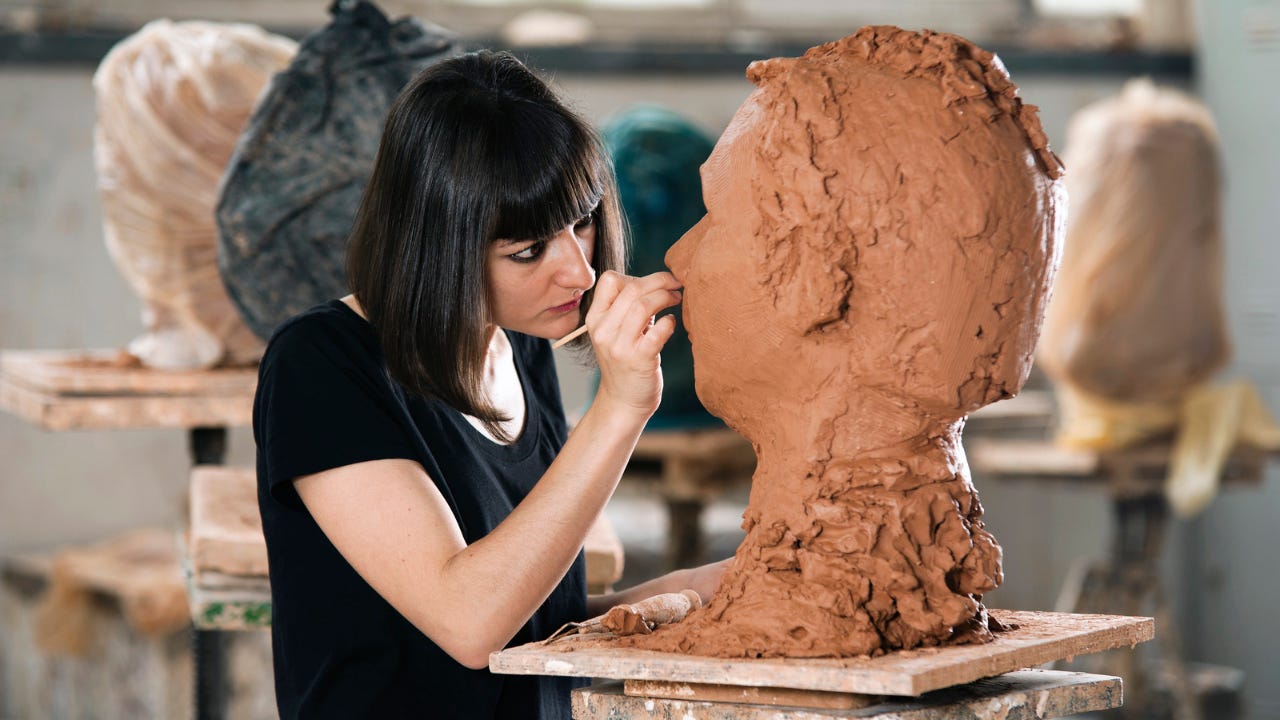When I work with students in my writing workshops or book coaching clients who are writing a book for the very first time, they’re super excited about their ideas but they’re overwhelmed with how to START.
When you have an idea running amok in your brain, it’s exciting but it can also feel kind of frantic. Like this idea of yours is already spiraling out of your control, with characters running around and doing all this stuff and the backstory unfolds and suddenly you know what the prequel should be and maybe you should write THAT book instead and oh the antagonist is so fascinating and you just realized why she is the way she is and speaking of plot twists you know EXACTLY what the big twist of your book is going to be and it’s going to make Fight Club look like Babysitters Club and you can literally feel the emotional impact the scenes you haven’t written yet are going to have on your readers but—
—then you actually try to sit down and start wrestling it into something on paper, and you just freeze up. How are you supposed to get all of that out of your head and onto a blank page?
First of all, the good news (or maybe this is bad news?): This is normal and (at least from my experience), it happens every time, no matter how many books you write. We feel attracted to all of these shiny templates or writing software that promises the ultimate organization for your stories and look, I have used both Scrivener and the Save the Cat software and I very much appreciate both of them. But when I’m first starting out with an idea, these templates overwhelm me because I feel like I need to fill in every single thing: character profiles, settings, oh my god you can upload pictures, etc etc…
I can’t fill all of that in yet because this idea is still nebulous. If these templates or these pieces of writing software work for you in the beginning, great! But if you’re reading this post, you’re probably experiencing the how to start struggle. So I'm giving you permission to not use any of those tools right now. I am giving you permission to be messy with your ideas.
In fact, I'm going to encourage it.
Day dreaming is important.
As writers, we often get really caught up with word counts because words are quantifiable and we can easily use them to gauge our success. Writing a ton of words equals success; not writing any words is a failure.
But the truth is you don't need to write in order to work on your book, and that is never more true than in that very very beginning brainstorming phase. In fact, I would say that if you start writing ASAP it’s like pouring hot water over coffee grounds and drinking right away.
The idea needs to percolate. Seriously. Don’t beat yourself up if you aren’t racking up thousands of words in a document right now. It’s fine.
The key is to make sure you don’t stay in this stage too long. At some point, you have to start. So...where do you start?
You start with a hammer and pick.
I’ll explain.
One of my favorite videos on YouTube is the making of a marble statue. When I see a statue or a sculpture in a museum, I can’t fathom how the artist accomplished it. Much the same way I think a lot of writers look at a published novel, hold it in their hands and think how do I make this. How do I take a block of marble and turn it into something so beautiful and detailed and REAL?
Enter the hammer and pick.
The sculptor roughs out the block with a hammer and pick. This is you finding the shape of your story. At first, it’s not going to resemble what’s in your head. This is the point where most people who start writing a novel give up. Don’t. You’re just finding the general shape of it. You’re making a bit of a mess in the process and that’s okay—that’s how it’s supposed to be.
You could go about this several different ways; a lot depends on how this idea came to you in the first place. Maybe you had an idea for a character, like a specific personality type or someone with a certain ability, and you want to just throw them into a scenario. Maybe you came up with a magic system or some fantasy world and you just want to explore the it but you don’t know who the character is yet. Maybe you just asked a really good “what if” question and you want to answer it.
These are all common ways to get ideas for books, and they’re great starting points. At this hammer and pick stage, spend at least some time uncovering three things:
Your main character or characters and how you see them changing from the beginning to the end
Your setting (worldbuilding is important for all genres, not just fantasy/sci-fi)
Your plot (not saying you have to plot everything now, but think about those kind of goalpost scenes, big moments you’re aiming for and where they might fall)
Remember, none of this needs to be set in stone (pun intended), you can always change it. Stay flexible. But write this stuff down.
When I’m ready to start working on an idea, I write the back cover copy. Even though I know that in the event this book is eventually published, that description will change, just having that pitch gets me excited and motivated and it’s something I can look at later when I’m writing the draft to kind of help keep me on the right course. A really good book description includes a compelling character with a want and a need and conflict and stakes and don’t forget the setting and yes! You can totally fit all of that in a few paragraphs! I’ve got a quick course on writing book descriptions step by step up on Skillshare if you’re interested.
So my hammer and pick is the description. The big picture summary of the story. And along with that, I have one word document where I ramble out all my thoughts. It is not organized, it is not pretty, it might even be nonsensical in places, but that’s okay. It’s the excess marble you have to hammer away as you find the shape of the statue.
The next step for the sculptor is a tooth or claw chisel to model the form and chip away more stone. Contours of a form are refined with increasingly fine chisels. You're narrowing in on the idea. It’s still messy, it’s still imperfect.
For me, this is in the form of beat sheets that I develop into outlines. Outlining is the most creative and fun part of the writing process for me. My outlines change a lot, sometimes later when I’m writing the draft; I stay very flexible with my outlines. But even so, they make other writers feel super restricted, and that's valid. It might not be for you. You might want to start writing the first scene and what unfolds.
The important thing is that you remember you're still using pretty big chisels at this. You are not writing the final version of this book that you will see in bookstores that you will one day holding your hands. Don't trick yourself into thinking that's what you're doing. It's a big chisel. It's going to result in a kind of clunky first draft, sure, but you are really going to start to see the shape of something incredible in there. Celebrate this step of the process.
As the sculptor continues to work, he uses increasingly finer tools and chisels, working on the smallest and most delicate details last. Consider the big picture of your story first and foremost and worry about sentence level issues later.
If we're going to take this analogy all the way to the end, I would say that the final piece being sanded or shine smooth using sandpaper or marble dust is the equivalent of line edits or copy edits.
Now imagine a sculptor took that sandpaper to the hunk of marble he had at the beginning and just focused on getting it all really shiny and smooth. That would be kind of pointless right? Because he's going to have to pick up that hammer end start chunking away at it.
I'm not saying you shouldn't strive to write beautiful prose in your first draft! You should experiment with your prose. But experimenting means you're going to write some genuinely beautiful gems—and some complete duds. You gotta accept that. Otherwise you’re just scrubbing a hunk of marble with sandpaper and that statue is never gonna emerge.
So how are you going to start? Are you jumping right into the draft? Are you outlining? Are you filling out a character sheet or creating a wiki about your fantasy world? Those are all great ways to begin…as long as you start with a hammer and pick.
Take that idea, and go make a mess.











Thanks Avi! I love that metaphor too. :) And no worries - I think every author (myself definitely included) has gone for the sandpaper first on MANY projects lol.
Hi Gina! I'm so incredibly sorry for your loss. I really hope writing your cozy series is helpful for your grief - sometimes it is, sometimes it's not and it's totally okay to give yourself some time. But yeah, just starting with something small can make the whole thing seem more manageable and fun! Best of luck with it (cozies are definitely one of my fav genres :)